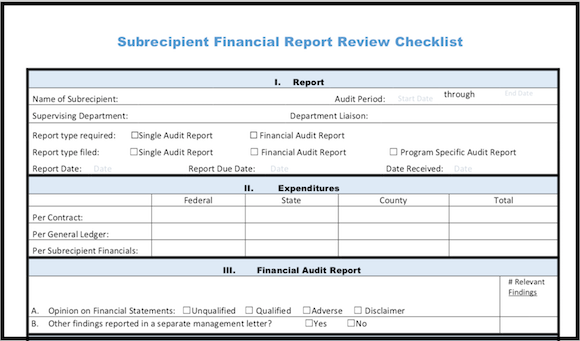|
You have just been appointed the Finance Director or CFO of a local government! First of all, congratulations! After a short celebration, reality starts to set in. Now what? How do I hold together the finance department staff; maintain the government’s internal controls; meet the deadlines for payroll, payables, financial reporting; keep the CEO and board/council happy; and make it all look easy?
Your Role As CFO First, you must recognize the most important elements of your new job:
Manage the finance department - Managing the finance department entails making sure that your employees are working productively. If they are not productive and effective, you cannot succeed. They do the important financial work every day. You will need to help them set priorities, meet deadlines, clear roadblocks and stay motivated. You will need to make sure that important deadlines are met for payroll, payables, billing and financial reporting. Determine the appropriate frequency of meetings with individuals and teams in the finance department. You will need to make sure that communication with your staff is thorough, frequent, appropriate and timely. Provide financial information to others - Your department (and therefore you) plays the key role in providing financial information to senior management, the board/council and management of other departments. And not just providing financial reports but helping them to understand, interpret and use financial information. Your role also calls for you to understand the financial information needs of your “customer” departments well enough to anticipate the financial information that is available to help them manage their department and budget and help them access/understand it. It also includes advising others in the organization about their role in internal controls and protecting the government’s assets from loss or fraud. Participate with senior management as financial expert - Most every decision that is made by senior management and the board/council has financial ramifications. Your job is to help them understand those ramifications. This is done by participating in the decision-making process and quantifying the related costs/revenues. It includes performing multi-year financial projections, what-if analysis and risk analysis as needed to show whether or not current decisions can be afforded in the future. The First 30 Days Since you have taken over as CFO recently, the rest of the organization is wondering whether the timeliness or quality of services from the Finance Department will suffer or improve. It is important for you to show them that things are under control. But you will have a small grace period in the eyes of your customer departments that you should use in the most productive manner. Therefore, you should make a plan for what you will do during the first 30 days. Don’t jump into fighting fires immediately. Take this grace period to consciously determine what are the most important things that need to be done. You don’t need to resolve problems in the first 30 days, but you should identify what the main issues are. For example, your 30-day plan may include something like the following: Week 1 – Meet with management and board/council Meet with each member of senior management team and each member of board/council. Ask them what their priorities and concerns are. What is their experience working with the Finance Department in the past? How can you best be of assistance to them? Don’t promise anything yet, just hear what they have to say. Week 2 – Meet with Finance Department employees Meet with each member of the Finance Department. Ask them what their career goals are and what concerns they have. How can you best help them do their job effectively? Week 3 – Review internal controls Review the main internal controls for the key business processes—payroll, billing/collections, purchasing/payables, budgeting, general ledger/financial reporting, capital assets, treasury. If your government hasn’t documented these controls yet, ask your auditors for a copy of their write ups. Sit with the employee experts in your department and walk through typical transactions to understand how they are authorized, posted, reviewed and documented. You won’t become an expert on controls over each process in such a short time, but focus on this to identify obvious problems. For example, you may identify individuals who have access to both an asset and the related accounting records. Such inadequate segregation of duties screams for attention because they allow an individual to steal an asset and hide the theft by manipulating the accounting records. Examples:
Week 4 – Review department deliverables and deadlines Become familiar with the primary reports and deliverables produced by the Finance Department, and their deadlines. This includes payroll, payable, grantor reports, monthly/quarterly budget vs. actual financial reports, budgets, mid-year reports, financial projections, audit, etc. How well are these reports produced, and are they timely? Are the staff responsible for preparing them knowledgeable and cognizant of the deadlines? Establish Your Priorities In the first 30 days you have gained a preliminary understanding of your government’s financial needs and goals. Now what do you do with this knowledge? You set your priorities. If you don’t set these priorities, you will spend your time fighting fires—in other words, you will spend your time working on other people’s priorities. There are plenty of CFO’s working very hard just holding their departments together. A good CFO, though, makes time to plan and implement improvements to operations and controls. This reduces future fires she/he will need to resolve. You will be successful if you see what needs to be done, decide how to improve it, and then do it. For example, if your government doesn’t have a good multi-year financial plan, prioritize making one. If it doesn’t have good internal controls over cash collections, prioritize making improvements in the process and training. If financial policies and procedures aren’t documented, prioritize that. For each issue you decide to prioritize, make a project plan that details the steps that need to be taken to further understand the problem and remedy it, who will be responsible for each step and the date by which each step will be accomplished. Attached is an example of a project plan for developing a written grants management policy. Once you have established your priorities, communicate them to the CEO, Finance Department staff, and any others in the organization that will need to be involved. If you follow this 30-day plan, you will be well on the way to a successful role as CFO of your government. Example Project Plan: Develop a Written Grants Management Procedure Task Responsible Date
governments J. Nunez 11/1/2024 2. Interview employees in finance and operating departments that have grants management duties to understand current practices, historical concerns, information needs and documentation available J. Nunez 11/15/2024 3. Draft grants management procedures J. Nunez 12/15/2024 4. Review draft policies and procedures with other departments and senior management J. Nunez 1/15/2025 5. Revise policies and procedures. Issue in final form J. Nunez 1/31/2025 6. Incorporate new procedures into Accounting Manual R. Chang 2/15/2025 7. Train finance personnel on new procedures T. Williams 2/15/2025 8. Develop training for other departments P. Proude 2/15/2025 9. Schedule and deliver training for other departments P. Proude 2/28/2025
Comments
|
The Government Finance and Accounting BlogYour source for government finance insights, resources, and tools.
SEARCH BLOG:
Meet the AuthorKevin W. Harper is a certified public accountant in California. He has decades of audit and consulting experience, entirely in service to local governments. He is committed to helping government entities improve their internal operations and controls. List of free Tools & Resources
Click here to see our full list of resources (templates, checklists, Excel tools & more) – free for your agency to use. Blog Categories
All
Need a Consultation?Stay in Touch! |



 RSS Feed
RSS Feed